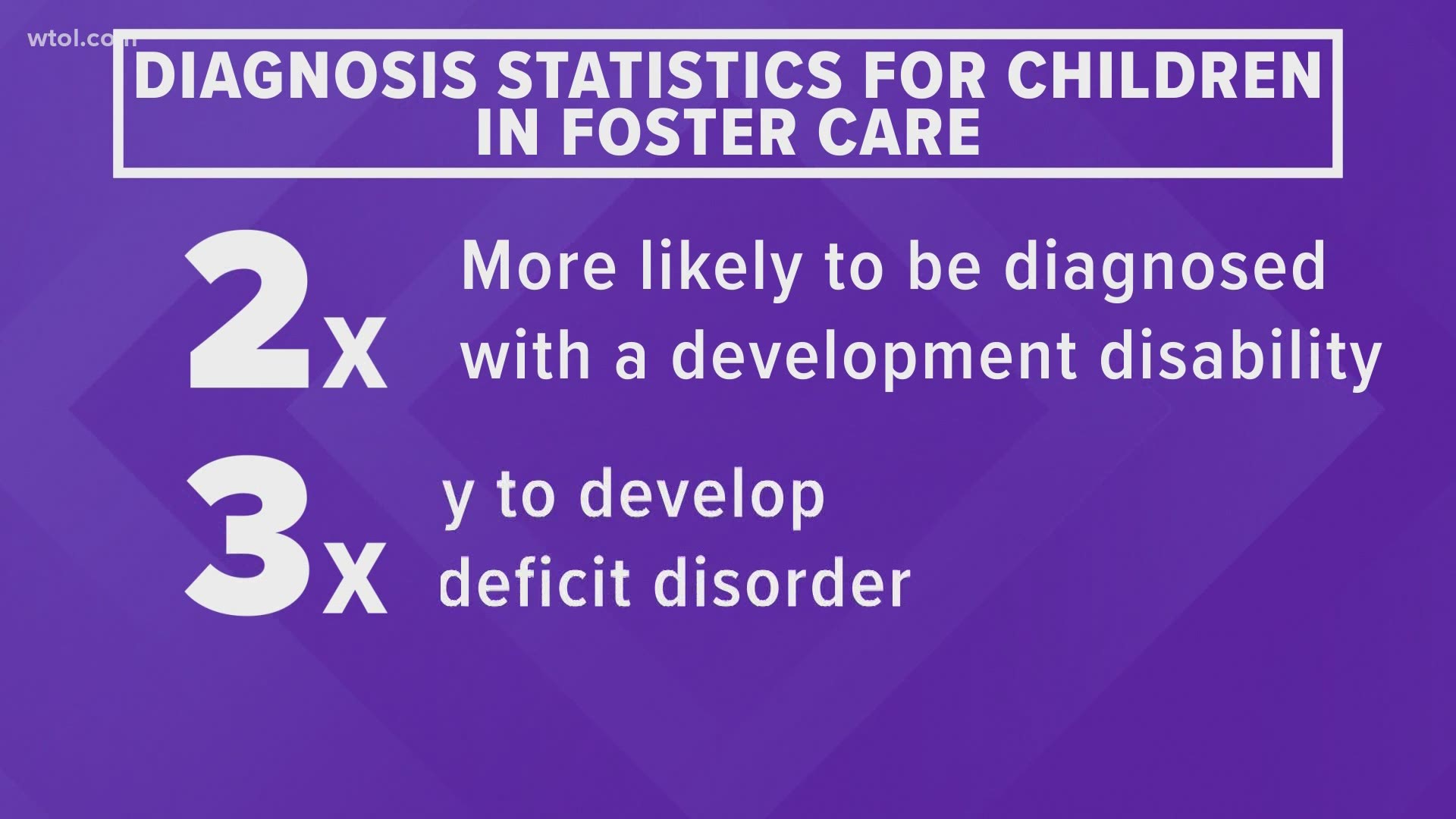TOLEDO, Ohio — May is National Foster Care Month.
Right now, more than 400 thousand kids are in foster care across the United States.
Over the last decade, that total number has seen a constant increase.
With a growing number of children entering foster care, there's an increased focus on providing them with support.
Many of the challenges faced by kids in foster care start at the foundation of how and why they arrived in the system.
"Most children who are in foster care are there because there's been evidence of maltreatment, abuse, or neglect," said pediatrician Dr. Arethusa Kirk, National Senior Director at UnitedHealthcare. "Therefore, that's a traumatic experience and there may have been months or years that have led up to that placement."
Dr. Kirk says being placed in and out of homes is also traumatic and leads to behavioral diagnoses.
Right now, children in foster care are two times more likely to be diagnosed with developmental delay, three times more likely to develop attention deficit disorder. And that's just the start according to the doctor.
"There's similar numbers to anxiety and depression as well as post-traumatic stress disorder," said Dr. Kirk.
Dr. Kirk has first-hand experience in foster care. From the age of four, she was in and out of the system until she aged out at 18. But that experience doesn't define her.
RELATED: 'We're a family': Couple adopts 4 siblings over Zoom, plan to help more children find homes
"I had the opportunity to have many people along the way who helped me. I then became a pediatrician to help advocate for children," said Dr. Kirk.
Although kids in foster care may face challenges, she says they are also the strongest people she's met because they know how to thrive.
She also points to the tools and resources foster families use to create positive well-being in kids.
"Help create stability for children and to help them navigate the emotions and experiences that they're having" she said.
You can do that by creating a sense of feeling seen, heard and understood. All are key components in helping them says Dr. Kirk.
RELATED:

